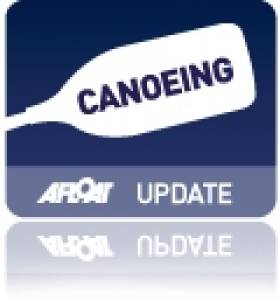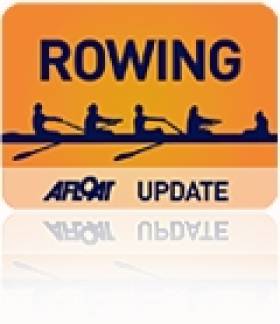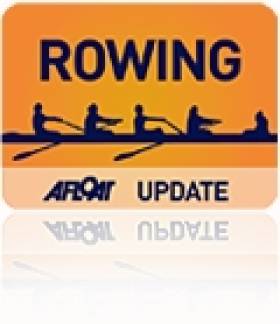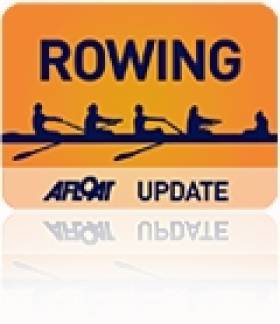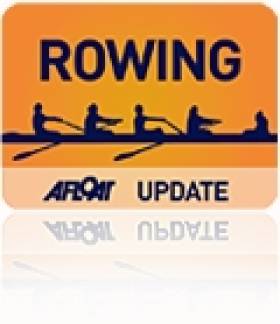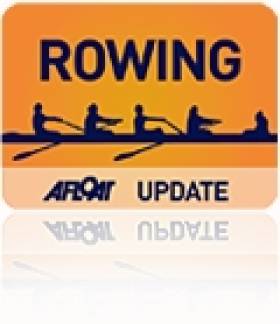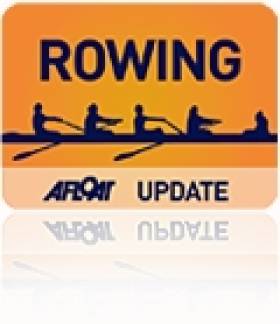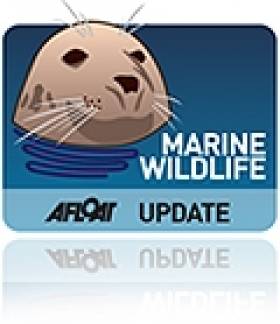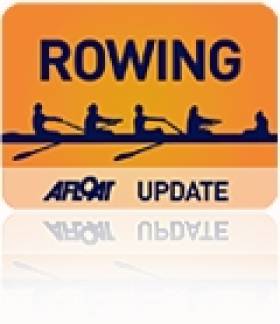Displaying items by tag: Cork
Cork Listed Among 'Best Cities For Kayaking'
#Kayaking - Urban kayaking is all the rage these days, with Dublin Bay a particularly popular destination for locals and visiting paddlers alike.
But Ireland's second city – once known as the 'Venice of Ireland' – is ready to stake its own claim thanks to its inclusion in Telegraph Travel's 10 best cities for kayaking.
Jim Kennedy's Atlantic Sea Kayaking runs trips that provide "a watery view of this maritime city's quays, wharfs and bridges" besides longer excursions out into Cork Harbour towards Cobh.
And Cork stands in some cosmopolitan company in this list that includes Berlin, San Francisco, New York, Melbourne, Cape Town and, of course, the famous canals of Venice itself.
Telegraph Travel has more on this story HERE.
Man Arrested After Falling Into River Lee
#Cork - The search for a homeless man seen falling into the River Lee in Cork city ended in his arrest, as The Irish Times reports.
Valentia Coast Guard co-ordinated the search and rescue operation for the man, who was witnessed falling into the water after 7am yesterday morning (Saturday 21 March).
However the man was quickly discovered by emergency personnel on a support beneath Parnell Bridge, refusing to come out.
The Irish Times has more on the story HERE.
O'Connell and O'Sullivan Joint Winners at Cork Sculling
#ROWING: Shane O’Connell (Cork Boat Club) and Daniel O’Sullivan (Lee Rowing Club) shared the winning of the 43rd Cork Sculling Ladder Time Trial held at the Marina course in Cork today. One hundred and seventy six scullers participated in this year’s event, which is sponsored by Hanley Calibration. O’Connell and O’Sullivan posted a winning time of six minutes 54 seconds each, a five-second winning margin from Colm Hennessy (Shandon Boat Club), the 2013 – 2014 Cork Sculling Ladder overall winner. Claire Synnott (Lee Rowing Club) won the Women’s Time Trial section in 7.43. She had two seconds to spare over her clubmate Eimear Cummins. Conditions for sculling were excellent on a very calm river.
The 2014-2015 Cork Sculling Ladder continues with two-boat racing until 29th March, 2015.
Cork Sculling Ladder Time Trial Set for Sunday
#ROWING: The 2014-2015 Cork Sculling Ladder Time Trial, sponsored by Hanley Calibration Ltd., takes place at the Marina Course, Cork on this Sunday from 08.00am to 01.00pm. Last year from an entry of over 150 single scullers, John Mitchell (Lee Rowing Club) won the overall time trial and Marie O’Neill (Cork Boat Club) retained the women’s.
A large entry is expected at the 43rd Sculling Ladder Time Trial especially with the sport in Cork on a high after major success at the Irish National Rowing Championships last July, with Cork Boat Club winning 7, Skibbereen Rowing Club 4, Lee Rowing Club, Presentation College Rowing Club, Shandon Boat Club and UCC Rowing Club, 1 apiece.
Competitors can launch only at Cork Boat Club and Shandon Boat Club as Lee Rowing Club do not have their new slip yet. Participants can also scull over the 1800 metre course as many times as they wish, but must have a different number each time if they are to have their time taken. The presentation to the two overall Time Trial winners (male and female) will take place at Cork Boat Club at 2.00pm.
Once the Time Trial is over , the 2015-2015 Cork Sculling Ladder continues with two-boat racing until Sunday 29th March, 2015.
#ROWING: Scotland topped off a remarkable win in the Home International Regatta with dominant wins in the senior women’s and men’s eights today in bright sunshine at the National Rowing Centre in Cork. Ireland finished second in the men’s eight, where the entire Scotland crew were from Edinburgh University and coached by Colin Williamson, once an Ireland team member. Scotland were the winners in the senior men’s and women’s classes, while England won the junior women’s and men’s titles.
Ireland finished third overall, placing second in men’s senior and junior classes.
Home International Regatta, National Rowing Centre, Cork
Overall Totals: 1 Scotland 106 pts, 2 England 101, 3 Ireland 79, 4 Wales 58. Men – Senior: 1 Scotland 34, 2 Ireland 29, 3 England 20, 4 Wales 17. Junior: 1 England 25, 2 Ireland 17, 3 Scotland 15, 4 Wales 13. Women – Senior: 1 Scotland 34, 2 England 28, 3 Ireland 20, 4 Wales 18. Junior: 1 England 24, 2 Scotland 23, 3 Ireland 13, 4 Wales 10.
Men
Eight: 1 Scotland 5:48.46, 2 Ireland 5:55.81. Junior: 1 England 5:58.48; 3 Ireland 6:08.84.
Four: 1 Ireland (T Deere, R Corcoran, D Buckley, K Coughlan) 6:11.85, 2 England 6:12.21. Junior: 1 Wales 6:24.97; 3 Ireland 6:33.09.
Four, coxed: 1 Scotland 6:31.05; 3 Ireland 6:48.43. Junior: 1 England 6:38.35, 2 Ireland 6:40.57.
Pair: 1 Ireland (N Murphy, A McKenna) 6:59.04, 2 Scotland 7:02.13, 3 England 7:25.08. Lightweight: 1 Scotland 7:07.86; 3 Ireland 7:17.19. Junior: 1 England 7:00.84, 2 Ireland 7:02.98.
Sculling, Quadruple: 1 Scotland 6:08.06; 3 Ireland 6:14.68. Junior: 1 England 6:10.89; 3 Ireland 6:27.26.
Double: 1 Scotland 6:40.76; 3 Ireland 6:51.88. Lightweight: 1 England 6:45.82; 3 Ireland 6:59.23. Junior: 1 Ireland (S Mulvaney, F McCarthy) 6:44.18, 2 England 6:45.59.
Single: 1 Ireland (E Grigalius) 7:12.90, 2 Scotland 7:21.52, 3 England 7:26.99. Lightweight: 1 Ireland (N Duncan) 7:22.39, 2 Scotland 7:26.29, 3 Wales 7:35.88. Junior: 1 Scotland 7:14.12; 4 Ireland 7:48.73.
Women
Eight: 1 Scotland 6:28.81; 3 Ireland 6:46.21. Junior: 1 England 6:40.71, 2 Ireland 6:46.72.
Four: 1 Scotland 6:50.28; 4 Ireland 7:21.12. Junior: 1 England 7:09.13; 3 Ireland 7:17.43.
Four, coxed: 1 Scotland; 3 Ireland 7:28.59. Junior: 1 Scotland 7:31.43; 4 Ireland 7:41.00.
Pair: 1 Scotland 7:36.50; 3 Ireland 7:49.83. Lightweight: 1 Scotland 7:50.28, 2 Ireland 8:01.28. Junior: 1 Scotland 7:47.97; 4 Ireland 8:01.67.
Sculling, Quadruple: 1 England 6:51.81; 4 Ireland 7:11.23. Junior: 1 England 6:57.40; 3 Ireland 7:09.94.
Double: 1 Scotland 7:28.98; 3 Ireland 7:39.57. Lightweight: 1 Scotland 7:22.07; 3 Ireland 7:48.63. Junior: 1 Scotland 7:33.87; 3 Ireland 7:45.72.
Single: 1 Wales 7:57.28; 4 Ireland 8:19.93.
Lightweight Single: 1 Ireland (E Desmond) 8:03.69, 2 England 7:4.02, 3 Wales 7:35.88. Junior: 1 England 8:14.03; 4 Ireland 8:30.05.
Pararowing: Trunk and Arms single sculls: 1 Ireland (K O’Brien) 4:51.98.
Cork Takes On Copenhagen in New Rowing Regatta
#ROWING: Cork will stage a regatta tomorrow (Saturday) in which young local rowers will take on visiting crews from Copenhagen. About 60 rowers from Cork Boat Club, Lee Rowing Club, Shandon Boat Club and Presentation College Rowing Club will represent Cork rowing, while an estimated 20 Copenhagen rowers from three Copenhagen rowing clubs will compete. The Deputy Lord Mayor will officiate at a welcome reception for them, their coaches and parents today.
The Copenhagen crews in each race are made up of a selection of rowers from the three Copenhagen clubs. They will race against crews from the individual Cork clubs except in the eights races where the Cork crews will also be made up of a selection of rowers from the Cork clubs - four clubs in the case of the girls crews and three clubs in the case of the boys crews (PBC rowing club having male only members).
The regatta is being sponsored by the Port of Cork Authority and Maersk Shipping Line and the crews in the eights races will compete for the Port of Cork- Maersk Trophies.
This is an inaurgural event and it is intended that the event will be held in Cork and Copenhagen in alternate years.
The regatta will consist of the following races:
Boys Junior 15 Sculls
Boys Junior 16 Sculls
Boys Junior 16 Double Sculls
Boys Junior 16 Quadruple Sculls
Boys Junior 16 Eights
Girls Junior 15 Sculls
Girls Junior 16 Sculls
Girls Junior 16 Double Sculls
Girls Junior 16 Quadruple Sculls
Girls Junior 16 Eights
Hennessy and O'Neill Top Cork Sculling Ladder
#ROWING: Colm Hennessy of Shandon Boat Club and Marie O’Neill of Cork Boat Club were the overall winners of the Cork Sculling Ladder for 2013-2014. O’Neill retained the title she had won in 2013. The presentation for all the winners of the Ladder will be made this evening by Judge Donagh McDonagh at Cork Constitution club at Temple Hill.
Rowers Sleep at National Rowing Centre as Thieves Strike
#ROWING: Outboard motors worth up to €20,000 were stolen from the National Rowing Centre in Cork at the weekend. It is understood that rowers from the High Performance Programme were staying at the NRC when thieves took the engines, which were attached to catamarans and tinnies moored on the water. The raid did not come from the land.
Rowing Ireland has advised that anyone who becomes aware of 15HP Hondas and 20HP Yamahas being offered for sale should contact the Gardaí.
Marine Creatures Light Up West Cork Saltwater Lough
#MarineWildlife - "There is no light and I've forgotten my headtorch. The walls close in and within a few seconds we are in total darkness. Something sparkles when I paddle. I put my hand in the water and spin it around. Suddenly an entire galaxy of stars explodes from my fingertips, sending fading constellations of pale blue lights swirling out into the black."
If that got your attention, The Guardian has more on Kevin Rushby's 'glow in the dark' kayaking experience in West Cork with Atlantic Sea Kayaking's Jim Kennedy, made possible by the unique bioluminescent marine wildlife of Lough Hyne.
Trinity Rowers Beat NUIG/Gráinne Mhaol at Skibbereen Regatta
#ROWING: Trinity beat NUIG/Gráinne Mhaol into second to win the Division One men’s eights final in warm sunshine at the Skibbereen Regatta at the NRC in Cork today. This was a surprisingly emphatic win, with over five seconds in it at the finish.
The Division One women’s final was much closer. UCD’s eight held off repeated pushes by Trinity to win by .6 of a second.
Gráinne Mhaol had earlier won the Division One men’s fours final, while a composite with international hopes – Marie O’Neill, Aifric Keogh, Emily Tormey and Barbara O’Brien were by far the best women’s four.
The Skibbereen men’s double of Gary O’Donovan and Shane O’Driscoll had a fine win in the Division One final.
Skibbereen Regatta, National Rowing Centre, Cork (Sunday Results)
Men
Eight – Division One – A Final: 1 Trinity (A McElroy, D Butler, J Magan, P Moreau, M Corcoran, M Kelly, L Hawkes, I Hurley; cox: C Sheehan; senior) 5:55.1, 2 NUIG/Gráinne Mhaol (sen) 6:00.5, 3 Carlow (inter) 6:12.7; 4 Portora (jun 18) 6:14.6. B Final: Trinity (inter) 6:09.5.
Four – Division One – A Final: 1 Gráinne Mhaol 6:20.1, 2 Commercial 6:23.9, 3 NUIG 6:30.9.
Four, coxed – Division Two – A Final: 1 UCD (club two) 7:00.3, 2 Trinity (club two) 7:03.3, 3 Trinity B (club two) 7:05.7; 4 St Michael’s (jun 18) 7:06.4. B Final: Blackrock (club two) 7:04.6; 2 Portora (jun 16) 7:08.3. C Final: Pres, Cork 7:23.7.
Sculling, Quadruple – Division Two – A Final: 1 Commercial (jun 16) 6:45.9, 2 Clonmel (jun 18) 6:52.1, 3 Lee (club two) 6:53.5. B Final: Skibbereen (jun 18) 6:59.6. C Final: Athlunkard (jun 16) 7:21.6.
Double – A Final: 1 Skibbereen (u-23) 6:38.6, 2 UCC (sen) 6:41.6, 3 Shannon (jun 18) 6:55. B Final: Shannon (sen) 6:55.4; 2 Garda (inter) 6:59.2. C Final: Garda (club one) 7:16.7.
Single – Division Two – A Final: 1 Clonmel (S Channon; jun 18) 7:41.4, 2 Belfast BC (A Murray; club two) 7:46.7, 3 Lee (D Synott; jun 18) 7:49.7; 4 Shandon (S O’Sullivan; jun 16) 7:51.1. B Final: Clonmel (S Lonergan; jun 18) 7:46.9. C Final: Carrick-on-Shannon (T McCabe; jun 16) 7:55.6.
Women
Eight – Division One – A Final: 1 UCD (C Harrison, A Crowley, S Bennett, R Larsen, O Finnegan, G Collins, A Gilligan, R Gilligan; Cox: A O’Leary; inter) 6:41.2, 2 Trinity (sen) 6:41.8, 3 Cork (sen) 6:56.0; 5 Portora (jun 18) 7:09.4. B Final: Trinity (u-23) 7:13.1.
Four – Division One – A Final: Univ of Limerick, Cork, Gráinne Mhaol, NUIG (sen) 6:59, 2 UCD (u-23) 7:16.6, 3 Skibbereen (sen) 7:24.9; 4 Skibbereen (jun) 7:28.5. B Final: Muckross (jun 18) 7:35.6.
Four, coxed – Division Two – A Final: 1 Commercial (club two) 7:50.7, 2 Garda (club two) 8:07.7, 3 Trinity A (club two) 8:37.1; 4 Muckross (jun 16) 8:37.4.
Sculling
Double – Division One: 1 Skibbereen (sen) 7:33.4, 2 UCC A (inter) 7:42.5, 3 Commercial (jun 18) 7:44.7; 5 Belfast BC (club one) 8:07.4. B Final: Killorglin (inter) 8:03.4.
Single – Division Two – A Final: 1 Belfast BC (K Turner; club two) 8:25, 2 UCC (D O’Sullivan; club two) 8:29.8, 3 Belfast BC (S Quinn; club two) 8:31.1; 4 Lee (E Cummins; jun 16) 8:39.0, 5 Muckross (Z Hyde; jun 18) 8:42.9. B Final: Lee (C Synott; jun 16) 8:38.9. C Final: Lee (S O’Mahoney; jun 16) 8:57.2.



























